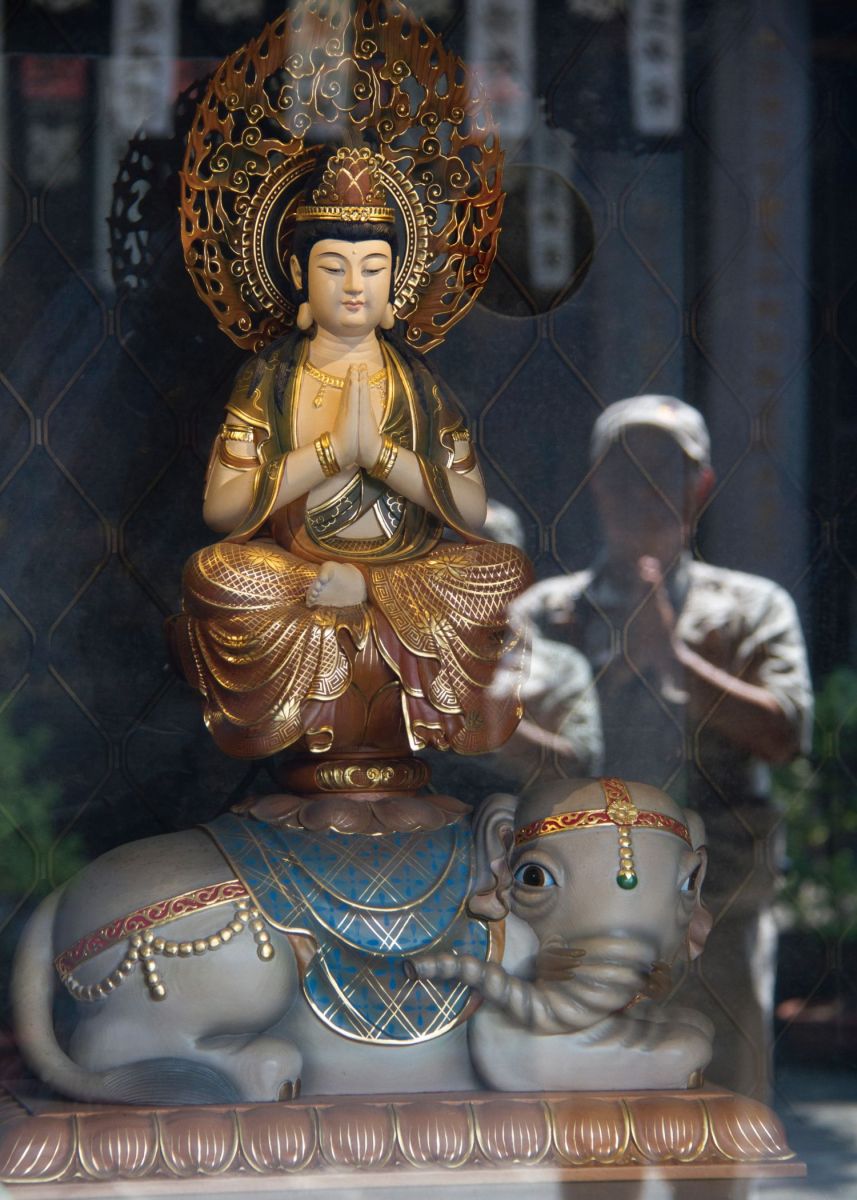Special Topics
Transfer of Merit –The Practice of Generating a Great Mind
 Buddhists usually complete their various Dharma practices and doing good deeds by transferring their merits to others. Although transfer of merit may seem simple, it contains the practice of "non-self," as well as the broad mindset of having "unattached, unconditional loving-kindness and empathic compassion".
Buddhists usually complete their various Dharma practices and doing good deeds by transferring their merits to others. Although transfer of merit may seem simple, it contains the practice of "non-self," as well as the broad mindset of having "unattached, unconditional loving-kindness and empathic compassion".Transferring merit is the simplest yet most effective practice in Buddhism. According to Theravada tradition, "pattidāna" is one of the ten karmic blessings (puññakiriyā vatthu) that Theravada Buddhists are required to practice. Tibetan Buddhism places strong emphasis on the transfer of merit, stating that practitioners should do so to protect their good karmic roots, strengthen their unwavering faith, and not regress on their journey of learning buddhadharma.
As explained by Bhante Dhammaratana from Sri Lanka, transferring one's merit is a form of earnestly wishing for the benefit of oneself and others. That is, the merit generated from my virtuous deeds are to be transferred to others in the hopes of allowing them to be freed from suffering and vexations. Therefore, we are indeed practicing Compassion, one of the four boundless mentalities, every time we transfer our merit to others.
The concept of the merit transfer never deviates from self-cultivation, as can be observed from the Buddhist scriptures. The tradition of practicing generosity and transferring merit had already existed in ancient Indian society long before Buddhism. These traditions included sacrificial rituals or practicing generosity to eliminate past sins in order to achieve rebirth in a favorable realm. Other examples include transferring merit to a Brahmin or devas for greater karmic blessings, or to deceased family members.
However, Buddhism is against sacrificial rituals in the form of killing and fire worship. Buddhism proposes that one's practice and actions are the keys to determining whether he or she goes to a higher or lower realm in the next life. Buddhism encourages us to practice generosity, diligence, patience, the observance of precepts, and other such virtuous Dharma, in order to receive the karmic rewards of the human and celestial realms. However, Buddhism also maintains that liberation from the Three Realms and the attainment of Nirvana are the more ultimate and supreme pursuits for practitioners.
Extended reading:
Transfer of Merit –The Practice of Generating a Great Mind
The Transfer of Merit: the Giving of Dharma that could be Practiced at any Time
What Buddhist Scriptures Reveal about the Evolution of Merit Transfer
Dedicating the merit for attainment of nirvana is superior to praying for karmic blessing in the human and heavenly realms
To practice the Buddhist teaching is to transfer merit in its true sense
Compassionately delivering sentient beings, dedicating the merit for supreme Bodhi
Dedication verses commonly seen in the Chinese Buddhist tradition
Tibetan Buddhism: The most sublime chapter on the Practices and Vows of Bodhisattva Samantabhadra
Q1: How is merit transfer different from the blessings we give to others in our everyday life?
Q2: Must we first accumulate merit before we can transfer it to others?
Q3: Would it matter if I don't transfer merits after chanting?
Q4: When we transfer the merit generated from self-cultivation to our family, friends, and deceased loved ones, can they really receive it?
Q5: Should we still transfer merit to specific people after we have already transferred it to all sentient beings in the Dharma realm?
Q6: The terms "making vows" and "transfer of merit" are often used alongside each other in Mahayana Buddhist scriptures. What are the differences between them?
Q7: Are there corresponding dedication verses for different Dharma methods? Can these dedication verses be used interchangeably?
Resource: Humanity Magazine Issue #413
Photo: Humanity Magazine Issue #413
Translation: Ariel Shen
Editing: Keith Brown, Bright
